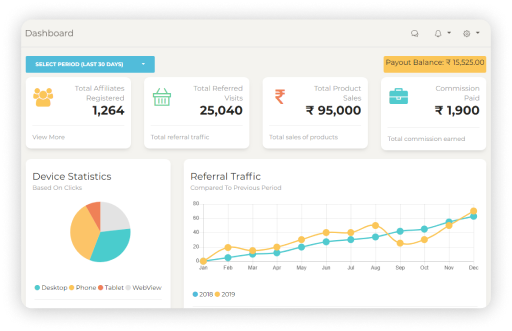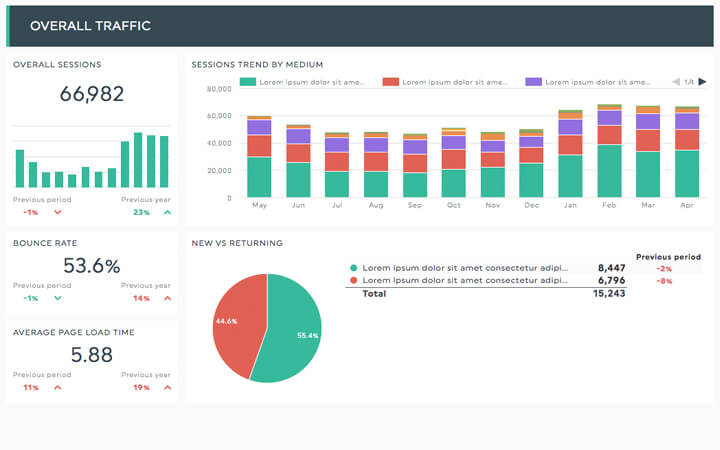Working from home has changed the way many people think about careers, especially for those who prefer solitude, deep focus, and minimal social interaction. Introverts—often misunderstood as shy or disengaged—actually thrive in environments where they can work independently, think deeply, and express themselves through writing, design, or strategy rather than constant conversation. With the rise of digital platforms and remote work tools, introverts now have more opportunities than ever to build meaningful, profitable businesses without stepping outside their comfort zones.
The truth is, introversion isn’t a limitation—it’s a different kind of strength. Many of the world’s most successful creators, thinkers, and entrepreneurs are introverts. They listen more, observe closely, and often produce higher-quality work because they’re not distracted by the noise of constant interaction. In the online world, where communication happens through screens and content speaks louder than charisma, introverts are uniquely positioned to succeed.
Here are 12 quiet but profitable online business ideas that align with the natural strengths of introverts—offering flexibility, creative freedom, and the ability to earn income without draining your energy through excessive socializing.
1. Freelance Writing
One of the most accessible paths for introverts is freelance writing. Whether you specialize in blog posts, copywriting, technical documentation, or long-form articles, writing allows you to communicate complex ideas without speaking a word. You can work with clients across industries—health, tech, finance, lifestyle—and build a steady stream of income by delivering high-quality content.
Platforms like Upwork and Fiverr make it easy to get started, while sites like Medium and Substack let you publish your own work and monetize through memberships or ads. Over time, you can niche down—say, writing only for SaaS companies or personal development coaches—and charge premium rates.

Quiet spaces often produce the best words.
Many introverts find writing to be a natural extension of their inner world. The process of researching, structuring, and refining ideas is deeply satisfying—and when done well, it can generate thousands per month. Some writers even create digital products like e-books or writing courses, adding passive income streams to their services.
2. Copyediting and Proofreading
If you have a sharp eye for grammar, punctuation, and style, copyediting or proofreading could be a perfect fit. Authors, entrepreneurs, and content creators often need someone to polish their work before publishing. As an editor, you work behind the scenes, ensuring clarity and professionalism without being in the spotlight.
You don’t need a formal degree to start—many editors learn through online courses like those offered by the Editorial Freelancers Association or Proofread Anywhere. Once trained, you can offer services on freelance platforms or directly to indie authors and small businesses.
This role is ideal for introverts who enjoy precision and detail. It’s also low-pressure: most communication is written, deadlines are predictable, and you can often work asynchronously, fitting tasks into your natural rhythm.
3. Graphic Design
Visual communication is powerful—and introverts often excel at it. Graphic design lets you express ideas through color, typography, and layout, turning concepts into compelling visuals. Whether it’s designing logos, social media posts, book covers, or website elements, your work helps brands tell their story.
Tools like Adobe Creative Suite, Canva, and Figma have made design more accessible. You can learn the basics through free tutorials on YouTube or structured courses on Skillshare or Udemy. Once you’ve built a portfolio, platforms like 99designs and Dribbble connect you with clients worldwide.

Design is a silent conversation between creator and viewer.
Many introverted designers find that creating visuals feels more authentic than speaking. There’s no need to pitch yourself verbally—your portfolio does the talking. Over time, you can specialize in areas like branding for coaches or packaging design for eco-conscious products, increasing your value and rates.
4. Virtual Assistant (Specialized)
While some virtual assistant roles involve heavy communication, many introverts succeed by focusing on backend tasks: managing emails, organizing calendars, bookkeeping, data entry, or handling customer support tickets. The key is to niche down and avoid roles that require constant chatting or phone calls.
For example, you could position yourself as a “systems-focused VA” who sets up automations using tools like Zapier or Notion. Or you might specialize in managing podcast show notes, transcriptions, or content scheduling. These tasks are repetitive, detail-oriented, and perfect for someone who likes structure.
Websites like Belay and Time etc hire VAs with specific skill sets. You can also reach out directly to podcasters, authors, or small business owners who need quiet, reliable support.
5. Online Course Creation
If you’re knowledgeable about a subject—whether it’s watercolor painting, personal finance, or Python programming—you can package that knowledge into an online course. Platforms like Teachable, Thinkific, and Kajabi make it easy to create, host, and sell courses without needing technical skills.
Introverts often make excellent educators because they prepare thoroughly and communicate clearly. You record your lessons once, and they can generate income for years. No live webinars? No problem—many successful courses are entirely self-paced.
Start small: create a short course on a very specific topic, like “How to Start Journaling for Anxiety Relief” or “Excel Basics for Freelancers.” Promote it through a simple website or email list. As you gain confidence, you can expand into larger programs or bundle courses together.

Teaching doesn’t require a classroom—just clarity and care.
One advantage for introverts: course creation lets you share your expertise without performing. You can script, edit, and refine your videos until they feel authentic. Many course creators never appear on camera at all, using slides or screen recordings instead.
6. Digital Product Sales
Digital products—like templates, printables, presets, or stock photos—are assets you create once and sell repeatedly. They’re ideal for introverts because they require minimal ongoing interaction. Once your product is live, it can generate income while you sleep.
For example:
- A Notion template for freelance writers
- A Canva toolkit for small business owners
- Lightroom presets for travel photographers
- Budgeting spreadsheets for young professionals
Markets like Etsy, Gumroad, and Creative Market are great places to sell. You can promote your products through Pinterest, SEO-friendly blog posts, or niche communities. No need to run ads or do sales calls—many buyers find digital products through search or recommendations.
The beauty of this model is scalability. You’re not trading time for money. A single $15 template can sell hundreds of times with no additional effort. Over time, you can build a catalog of products that support a full-time income.
7. Affiliate Marketing (Content-Based)
Affiliate marketing gets a bad rap, but when done authentically, it’s a legitimate way to earn by recommending tools or services you genuinely use. Introverts often succeed here by creating in-depth, helpful content—blog posts, comparison guides, YouTube videos, or newsletters—that naturally includes affiliate links.
For instance, you might write a detailed review of project management tools for solopreneurs, linking to your favorites with affiliate codes. Or you could create a free email course on productivity, recommending apps like Notion or Todoist along the way.
Platforms like ShareASale, CJ Affiliate, Web2power and Amazon Associates offer thousands of programs. The key is to focus on niches you care about and build trust over time.

Silent recommendations can generate steady income.
This path works well for introverts because it emphasizes writing and research over promotion. You’re not pitching aggressively—you’re helping people make better decisions. Over months and years, consistent content builds an audience and compounds earnings.
8. Transcription Services
Transcription involves listening to audio or video recordings and turning them into text. It’s a straightforward, solitary job that suits introverts who are patient, attentive, and good with language. Many podcasters, researchers, journalists, and legal professionals need accurate transcripts.
You can start with general transcription, then specialize in areas like medical, legal, or academic transcription for higher pay. While some roles require certifications (especially in medical fields), many freelance opportunities don’t.
Websites like Rev, TranscribeMe, and Scribie offer entry-level work. As you gain experience, you can set up your own website and attract direct clients.
The work is quiet, focused, and predictable—perfect for someone who prefers headphones and a keyboard over small talk.
9. Search Engine Optimization (SEO) Consulting
SEO is the practice of helping websites rank higher in search engines like Google. It involves keyword research, on-page optimization, content strategy, and technical improvements. While it sounds technical, much of it is research and writing—skills many introverts already have.
You can offer SEO services to small businesses, bloggers, or e-commerce sites. For example, you might audit a client’s website, suggest improvements, and write optimized blog posts that drive organic traffic.
Learning resources like Ahrefs Blog, Backlinko, and Moz offer free, in-depth guides. Tools like Ahrefs, SEMrush, and Google Search Console help you analyze data and track progress.

Behind every top-ranking page is someone who understood the data.
Introverts often excel at SEO because it rewards patience, analysis, and long-term thinking. Unlike paid ads, which stop working when you stop paying, SEO builds momentum over time. A single well-optimized article can bring traffic for years.
10. Podcast Editing
Podcasting has exploded, but most hosts don’t want to spend hours editing audio. That’s where you come in. As a podcast editor, you clean up recordings, remove filler words, balance audio levels, add music, and export polished episodes.
The work is detail-oriented and solitary—perfect for introverts who enjoy working with sound. You don’t need to appear on the show or interact with guests. Most communication happens over email or project management tools.
You can learn editing with free tools like Audacity or GarageBand, then move to professional software like Adobe Audition or Descript. Many editors offer packages based on episode length or monthly retainer.
To find clients, join Facebook groups for podcasters, browse forums like Reddit’s r/podcasting, or reach out directly to indie hosts. Over time, you can build long-term relationships and charge premium rates.
11. Niche Blogging or Micro-Publishing
Starting a blog around a specific interest—say, minimalist living, vintage cameras, or sourdough baking—can become a sustainable business. Through ads, affiliate links, sponsorships, or digital products, you can monetize your expertise and passion.
Introverts often make great bloggers because they’re naturally reflective and curious. They dive deep into topics, ask thoughtful questions, and write with authenticity. A well-researched article on “How to Store Herbs for Long-Term Use” might attract thousands of readers over time.
Use platforms like WordPress or Ghost to build your site. Focus on SEO and evergreen content—articles that remain relevant for years. Grow your audience slowly through Pinterest, search traffic, or email newsletters.

One quiet voice can reach thousands.
The key is consistency, not charisma. You don’t need to go viral. A small, loyal audience can support a full-time income if you offer real value. Many niche bloggers eventually create courses, books, or communities based on their content.
12. App or Website Development (Freelance or Indie)
If you enjoy problem-solving and logic, learning to code could open doors. Introverts often thrive in programming because it’s a solitary, creative process that rewards focus and precision. You can build websites, web apps, or tools that solve real problems.
Start with front-end development (HTML, CSS, JavaScript) or dive into full-stack with frameworks like React or Node.js. Free resources like freeCodeCamp, The Odin Project, and Scrimba make learning accessible.
Once skilled, you can freelance for clients or create your own products. Many successful indie hackers—solopreneurs building small SaaS tools—are introverts who built apps in silence and launched them quietly.
For example, a simple tool that converts voice notes to text, or a calendar app for freelancers, could generate monthly subscriptions with minimal marketing. The internet rewards utility, not popularity.
Why These Paths Work for Introverts
Each of these ideas shares common traits that align with introverted strengths:
- Low social demand: Minimal real-time interaction, no cold calling or networking events.
- Deep work friendly: Tasks that benefit from focus, reflection, and sustained attention.
- Asynchronous communication: Most client or customer contact happens via email, messages, or tickets.
- Creative autonomy: You set the pace, choose your projects, and express yourself on your terms.
- Scalability: Many of these paths allow you to build assets (courses, products, content) that earn over time.
The goal isn’t to “fix” introversion or force yourself into extroverted molds. It’s to design a business that honors your natural rhythm—where quiet isn’t a flaw, but a foundation.
Getting Started: A Quiet Mindset
If you’re an introvert considering an online business, remember: you don’t need to be the loudest voice to be the most impactful. Success isn’t about how many people you talk to—it’s about how well you serve them.
Start small. Pick one idea that resonates and spend a few hours exploring it. Read a guide, watch a tutorial, or draft your first piece of content. Don’t wait for confidence—action builds confidence.
Set up a simple workspace where you feel calm and focused. Use noise-canceling headphones, work during your peak energy hours, and protect your time like it’s sacred.
And most importantly, give yourself permission to work quietly. You don’t need flashy launches or viral reels. A single well-written article, a beautifully designed template, or a perfectly edited podcast episode can be the seed of something lasting.
The digital economy doesn’t reward performance—it rewards value. And introverts, with their depth, care, and attention to detail, are uniquely equipped to deliver it.
Final Thought
Introversion is not a barrier to entrepreneurship. In fact, in the world of online business, it might just be your greatest advantage. While others chase attention, you can build substance. While others burn out from constant connection, you can sustain your energy through solitude and purpose.
The 12 paths listed here aren’t just “quiet jobs”—they’re real businesses with real income potential. They’ve been proven by thousands of introverted entrepreneurs who chose to work differently, not less.
So if you’ve been hesitating, wondering if you’re “outgoing enough” to succeed online—let that doubt go. Your quiet nature isn’t holding you back. It’s preparing you.







